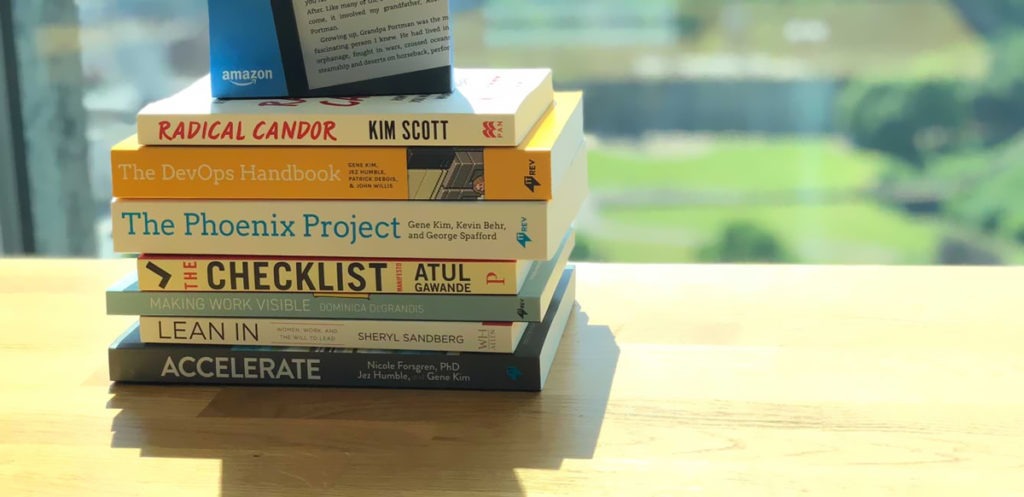
- What is deliberate learning?
- How the heck do you find the time?
- Any tips on structuring your learning?
- What has been the impact of the shift to virtual events and conferences?
- Building relationships within a developer community and aligning learning to company values
- Want to launch a developer event despite the challenges of COVID-19?
In preparation for our upcoming online conference, I spoke to one of our speakers, Bert Jan Schrijver, CTO of OpenValue. He’s an international speaker, recognized Java champion, JavaOne rock star and Groundbreaker Ambassador with a focus on Java, Continuous Delivery, and DevOps.
Bert is also the User Group leader for NLJUG (Netherlands Java User Group), an author for Java magazine, and Devoxx4Kids volunteer. He’s also a huge fan of the value that deliberate learning can bring to a developer career.
I’m always interested in how people carve a space for themselves in tech, raising their profile and expanding their future opportunities. If you even want someone to espouse the benefits of public speaking and writing, Bert is ideal.
He explains that through his time publishing and editing tech articles and speaking at conferences, he got recognised as a Java champion in response to his community work.
His company OpenValue grew from a collaboration with a fellow NLJUG colleague, “where the goal was to build the best Java shop to work for in the Netherlands. So the goal was to find amazing people and have them do awesome projects.” The company has grown to a staff of 25 and scaled from Utrecht and Rotterdam to Munich, Dusseldorf, and Vienna.
What is deliberate learning?
Bert attributes much of his success to what he calls deliberate learning: “You’re actually focusing on, what do I want to learn? How do I want to learn it? Then you make sure that you optimise the learning experience.” He notes that there is a myriad of ways to consume content based on your personal preference.
“For me, consuming lots of small chunks tends to work better than devouring larger chunks of books or content.” Two books he rates are Gene Kim’s co-authored The Phoenix Project and The Unicorn Project.

How the heck do you find the time?
Many of us have the aspiration of writing an article (Codemotion always welcomes contributions) or preparing a presentation. Still, more pressing demands take over, and before you know it, the Call for Proposal is long past, and the technology discussed in your half-finished article has become yesterday’s news.
According to Bert, he initially spent time working on writing and presentations in the evening and on weekends. However,
“Now that I run a company, I’m a bit more flexible with my time, and I consider speaking at conferences, as part of our marketing strategy. So if I go on stage and show some of the stuff we built in our projects, maybe our clients or colleagues will think, ‘Oh, this is interesting’. So now it’s easier for me to make time during the day.”
Bert considered switching to a career as a developer advocate in the early days of his career when he became an active speaker, “because I really love travelling and speaking. I spoke to people in the role.
And they said, ‘Well, for you, it’s a hobby, but for me, it’s work, and typically you are rated or graded on how good you do, so you need to get metrics on how many attended your talk, their feedback, how many views on your blog, how many posts etc.’ But I realised that I want it to remain fun – this has always been an essential part for me, just having fun and enjoying learning.”
Any tips on structuring your learning?
Bert suggests deciding what you want to learn, and either dividing your efforts into different formats based on your interests: are you learning by reading or watching something for example, or are you focusing hands-on, such as learning a new language.
“So if it’s an introduction to a new language, I can typically find this out by myself by jumping in and experimenting. But if it’s a talk by somebody who’s worked with this framework for five years, they are going to cram five years of experience in one talk, and it’s obviously good to listen to them.
In presentations, I’m typically looking for people sharing their own experiences with a tool or product methodology or whatever, to benefit from their experience.”
Bert sees most of his learning as “small chunks and pieces that I might zoom into more later. So at a conference, I try to find small chunks and pieces to place in my developer toolbox so that I know just enough.
For example, I know that Quarkus is a framework developed by Red Hat that aims to replace Java EE applications easily and has a cool developer experience and can compile to native images. This is all I need to know. Because I can dive into it further. So, I’d rather know lots of little things than just one thing well.”
What has been the impact of the shift to virtual events and conferences?

Many organisations have shifted from in-person events to virtual conferences and meetups. While it evolves a significant change in mindset for these organisations, it’s also new for presenters. Bert recalls his very first experience presented virtually:
“I was unexpectedly nervous. And I found that it was because of two things. First, if you present an event, you go there, you plug in your laptop, you have somebody managing the beamer, the projection, checking the audio, clicking remotes etc.
When you are presenting remotely, you need to manage audio, video and everything else yourself. Also, the feedback loop is a lot different if you are used to looking at people’s facial expressions.”
Bert is also a big fan of keeping the audience awake by making them do lots of things like raising hands, standing up, shouting something. This is more difficult during a virtual event:
“I asked attendees’ Can you tell me how long you have been in software development, via the chat function?’ And I waited for three, five, ten seconds, nothing came, and I thought, wow, this is a tough crowd. Then a flood of about 300 chatlines flow by, and I realised there was a delay.”
Building relationships within a developer community and aligning learning to company values
A CTO typically spends a lot of time helping their team with troubleshooting. When Bert’s team has a Java-related problem, he has a particular advantage:
“I think one of the things that being active in the community and having a speaker profile has brought me is a broad network of interesting and useful people in my industry. So I can just send them a message like ‘Hey, can you help me out with this and that,’. And in turn, I’ll also help other people when they come across a problem or connect them with other people who may be able to help.”
OpenValue has been able to apply the inherent community value of knowledge sharing to their work with potential clients. “ We don’t really do any sales pitching. We only share what we’ve learned and what we are good at. Once you share something without expectation, maybe they want to do business with you.”
Bert most recently presented an introductory training about Amazon Web Services to a group of developers, “where I run a demo and give an overview of the program. I also shared some of our experiences of running with AWS in production with different clients. This is a significant shift from a traditional sales model where you talk numbers and money.”
OpenValue has three central company values:
- Fun: “What we do must be fun. And if it’s not fun, then we shouldn’t be doing it or should change it. If it’s not fun, you’re not learning, and there isn’t any point in doing it”
- Craftship: “We endorse craftship and the desire to improve”
- Sharing knowledge
Want to launch a developer event despite the challenges of COVID-19?
If you want to know more about how modern technologies and tools can support you for – and during – the organisation of a virtual event, don’t miss this article showcasing the best tools we used to host our online conferences since the COVID-19 outbreak.
